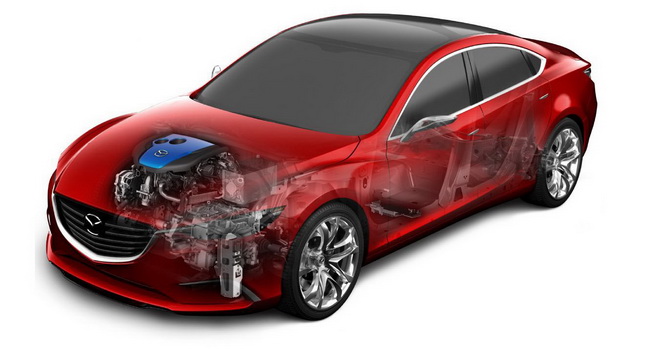Regenerative braking systems that store energy into batteries during braking are becoming increasingly common in new cars because they help reduce fuel consumption.
Today, Mazda presented what it claims to be the world’s first passenger vehicle regenerative system that uses a capacitor instead of a battery pack for storing energy, named i-ELOOP (“Intelligent Energy Loop”).
According to Mazda, a capacitor is superior to batteries because it does away with the need for an electric motor and can be charged and discharged rapidly while it also doesn’t deteriorate after prolonged use.
The i-ELOOP system comprises a new 12-25V variable voltage alternator, a low-resistance electric double layer capacitor and a DC/DC converter. It captures energy that would otherwise be dissipated as heat the moment the driver lifts his foot of the accelerator pedal and the vehicle starts to decelerate.
At that time, the alternator starts generating electricity up to 25V before sending it to the capacitor where it is stored in mere seconds. The DC/DC subsequently converts the electricity from 25V to 12V before powering the vehicle’s climate control and audio systems, various other electric systems and can even charge the battery if necessary.
Mazda claims that the i-ELOOP, which will be combined with the firm’s i-stop auto stop-start system, reduces fuel consumption by approximately 10% and will be available in production vehicles in 2012.
The i-ELOOP will make its public debut at next week’s Tokyo Motor Show in the Takeri concept car, which previews Mazda’s replacement for the mid-sized Mazda6 family saloon.
PHOTO GALLERY













